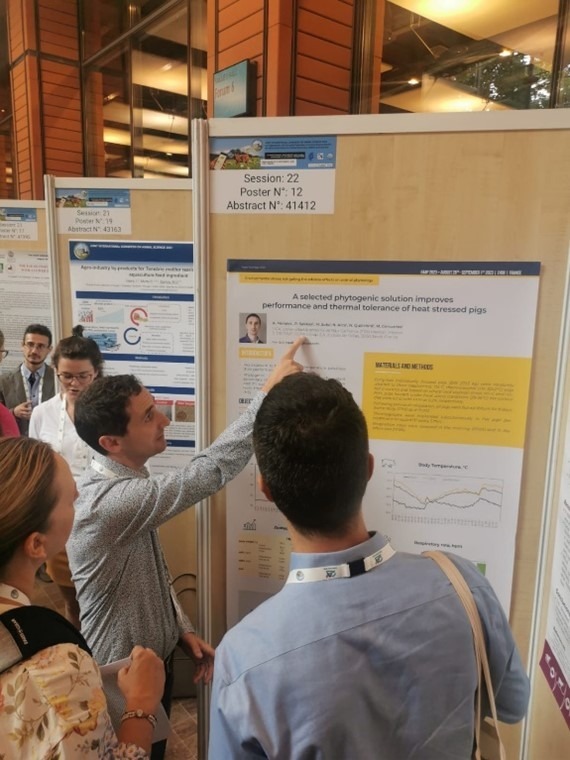The Scientific Community of the CCPA Group was present in force at the EAAP 2023 congress! Thermo® products were the subjects of two publications in ruminants and swine.
CCPA research highlighted at the EAAP congress
The 74th EAAP – European Federation of Animal Science congress was held last August in Lyon, France. The general topic of this Congress was “Climate change, biodiversity and global sustainability of animal production”. On this occasion, CCPA was proud to present 4 scientific posters, with two on Thermo® solutions in dairy cows and pigs. The research presented illustrates the dynamic innovation of the Group’s Scientific Community in Animal Health and Nutrition.

Thermo®Plus successful trial with dairy cows in Israël
Dr Maya Zachut from Volcani Institute in Israël did an oral communication about a trial with Thermo®Plus in dairy cows during peak summer. Thermo®Plus improved the dry matter intake by 2.2 kg/cows/days while the milk yield increased by 3.2 L/cows/days. The natural solution was effective with or without cooling and moreover the effects of Thermo®Plus were more significant than those of cooling on milk production and consumption parameters. The presentation was followed by numerous questions in the audience and open the perspectives for broader investigation of the utilization of the solution to mitigate heat stress after-effects.
Discover the publication: Scientific publications
The power of plant-based ingredients to reduce pigs’ body temperature under heat stress
The poster session was the occasion to present a trial done in pigs with the University of Baja California in Mexico. Pigs received control diet or diet supplemented plant-based ingredients contained in Thermo®Control and were housed in two different conditions: either at normal temperature or under heat stress with temperature ranging from 29 to 36°C. Heat stress conditions negatively impacted the feed intake, growth, and subcutaneous body temperature. The publication confirmed that the CCPA supplementation reduced the internal body temperature and improved the performance and thus, alleviated heat stress impacts in pigs.

Consult the poster: Scientific publications



